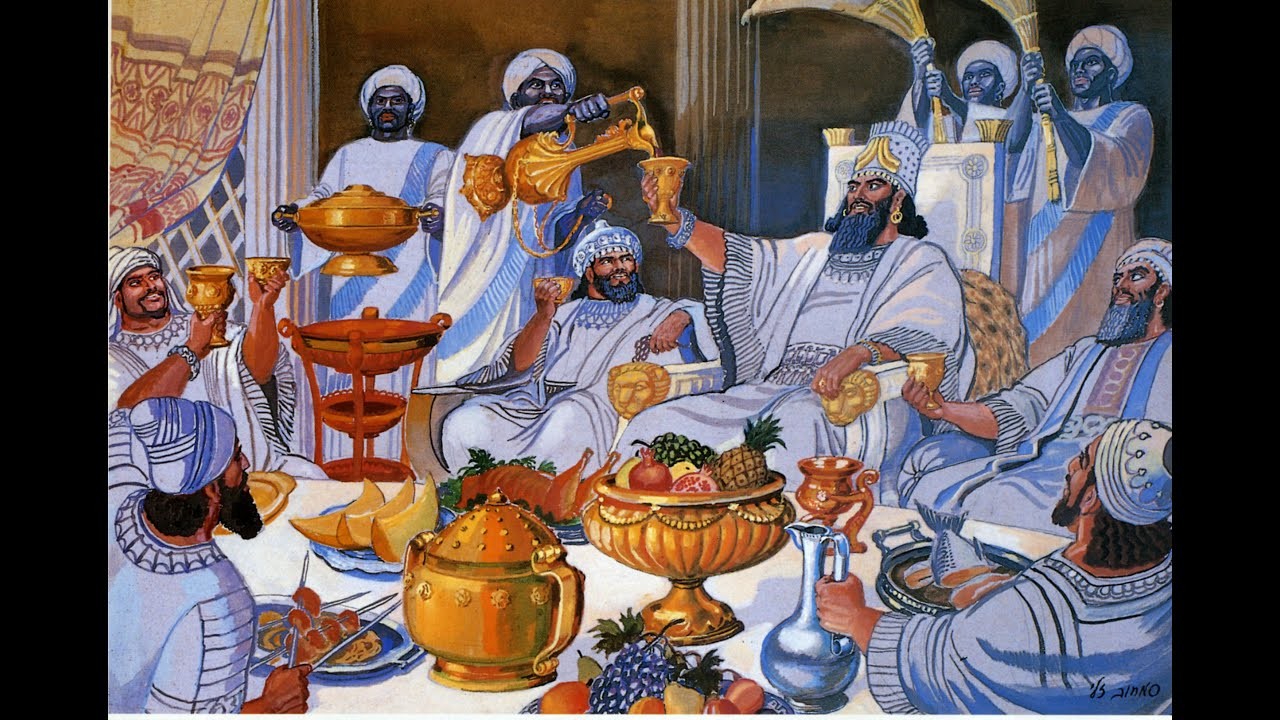Moshiach transforms the somber fast day, the 17th of Tammuz, into a brilliant celebration and feast. All our days will be yomim tovim, days of celebration and joy.
By Rabbi Boruch Merkur

Fast or feast this year on the 17th of Tammuz? Typically observed as a somber day of introspection and fasting, the 17th of Tammuz is the beginning of the exile of the Jewish people. But in the times of Moshiach, we will feast on that day.[1] In fact, fast days will be celebrated with an intensity that eclipses Purim.
In a spiritual sense, a fast is already a feast of sorts, a life-giving appreciation of what hunger teaches[2]: “The good in fast days is reflected in the words, ‘to enliven them in hunger.’ The hunger[3] (fast) itself means life.”[4] But the Rebbe extols the virtue of actually feasting on a fast day (when it occurs on Shabbos, or when Moshiach comes), even relating it to the Feast of the Leviasan, the enormous victory banquet to honor the new era.[5]
The Rebbe is adamant that we have already begun history’s epic finale:
Certainly, beyond a shadow of a doubt, the time of the redemption has arrived. As our Sages teach, “All final predictions of the end of exile are done.” In fact, even repentance (as the Sages’ teaching continues, “it now depends only on t’shuva-repentance”) has been completed, including the ultimate perfection of “Moshiach comes to bring the righteous to t’shuva,” referring to the core spark of Moshiach within each Jew.[6]
The Rebbe cites Likkutei Torah,[7] where it explicitly states that the righteous repent only after Moshiach comes. Yet that has already happened. Wow.
*
According to all the signs our Sages use to identify the final generation of exile, known as the Footsteps of Moshiach, this is the last generation of exile and (thus) the first generation of redemption. When we come to the time of year when the destruction and exile took place (beginning with the 17th of Tammuz), the main emphasis is therefore (not to correct its negativity, but to focus on) its “good,”[8] how it is the preparation for the true and complete redemption.[9]
The Gemara interprets the verse, “The Fourth Fast[10]…shall be for the House of Yehuda for celebration and rejoicing, etc.”[11]: “In a time of peace, the fast days will be for celebration and rejoicing, but if there is no peace – fast.”[12]
At first glance, it is not understood. How can a single day be called by categorically opposite names – a “fast” day as well as a “celebration and rejoicing”? But the intent and purpose (the inner significance) of a “fast” is to transform it to the “celebration and rejoicing” that follows and results from the destruction and exile. It’s just that in the time of exile, the main emphasis is fasting. But in the time of the redemption the true quality of the fast days will be experienced - “celebration and rejoicing.”[13]
The fasts days will be holidays celebrated even more intensely than Purim. Purim itself is unique as [unlike the other holidays] it will not be nullified in the Future Era[14] … In fact, the days of Purim will stand out in the Messianic Era even amidst the overwhelming experience of Divinity that will be constantly apparent then. Certainly the celebration of the new holidays of the time of Moshiach [i.e., the fast days transformed into great celebrations] will surpass even the Purims of that era.[15]
*
The great joy of Purim celebrates the clear awareness that Hashem yisborach always hears our prayers, as in the time of Mordechai and Ester …
In the Future Era, all the holidays will be nullified, with the exception of Purim. The final redemption will be so great that the magnitude of the miracles of the first redemption, which the other holidays celebrate, will be rendered unimpressive … The tremendous joy of the Messianic Era will be constantly apparent then, inspired by the spectacular salvation and wonders that we will experience.
The joy of yom tov won’t be so discernible then … for the final redemption will flourish with extreme brilliance. In fact, all our days will be yomim tovim, days of celebration and rejoicing, as it is stated, “we will sing and celebrate through all our days.” The joy of yom tov won’t be so recognizable, as all our days will be celebrated.
The joy of Purim, however, will be apparent even then, because through the miracles of Purim - the evisceration of Amalek and the preeminence of Mordechai - we merited to draw upon ourselves Mordechai’s light, which is the aspect of “b’samim, rosh mar dror (spices, solidified myrrh).”[16] With this light we merited [throughout history] to constantly take strength in prayer, even at the end of this bitter exile (ha’galus ha’mar ha’zeh). The final redemption was established as a result, for the principal weapon of Moshiach is prayer.[17]
*
NOTES:
[1] Rambam’s Laws of Fasts, end.
[2] Seifer HaSichos 5751, pg. 684, FN 14.
[3] for G-d.
[4] See Likkutei Torah Shir HaShirim 14b, among others.
[5] Seifer HaSichos 5751, pg. 685.
[6] Seifer HaSichos 5751, pg. 690.
[7] Drush Shmini Atzeres 92b.
[8] “tov” in Hebrew, which equals 17.
[9] Seifer HaSichos 5751, pg. 689.
[10] the 17th of the month of Tammuz, which is the fourth month from Nissan.
[11] Zecharia 8:19
[12] Rosh HaShana 18b
[13] Seifer HaSichos 5751, pg. 684
[14] Midrash Mishlei 9:2, among others.
[15] Seifer HaSichos 5751, pg. 686-687
[16] Shmos 30:23
[17] Likkutei Halachos Choshen Mishpat, Laws of Inheritance 4:16-17